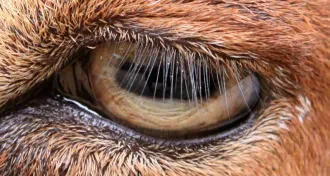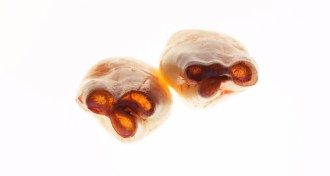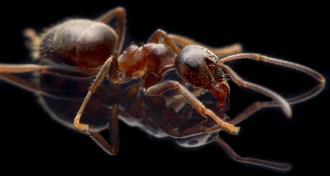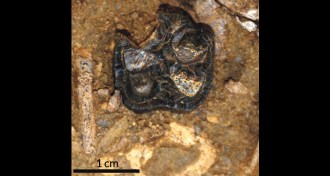All Stories
-
 Quantum Physics
Quantum PhysicsPhysicists double their teleportation power
In a teleportation first, physicists transfer two quantum properties from one photon to another.
By Andrew Grant -
 Health & Medicine
Health & MedicineAdditives that keep foods fresh may sour in the gut
Additives called emulsifiers that are used in ice cream and other foods weaken the intestines’ defenses against bacteria, causing inflammation in mice.
-
 Health & Medicine
Health & MedicineCommunity protection against measles jeopardized
‘Herd immunity’ to measles may be threatened by low vaccination rates in some parts of the United States.
-
 Earth
EarthWater’s unclear origins, shaky solutions to climate change and more reader feedback
Readers discuss the pitfalls of carbon storage, whether a recent movie got Alan Turing's story right and more.
-
 Health & Medicine
Health & MedicineWhy stress doesn’t just stay in your head
Chronic stress may start in the brain, but new research reveals that its influences on the body roam far and wide.
By Eva Emerson -
 Life
LifeThe eyes have it: Long lashes not so lovely
Eyelashes can’t be too short or too long without ruining their aerodynamic protection.
By Susan Milius -
 Science & Society
Science & SocietyIslamic science paved the way for a millennial celebration of light
Ibn al-Haytham’s book on optics from a millennium ago serves as a good excuse to celebrate the International Year of Light.
-
 Health & Medicine
Health & MedicineStem cells from wisdom teeth could help repair corneas
A study points to a potential new treatment for corneal blindness: Stem cells extracted from pulp from pulled wisdom teeth.
-
 Animals
AnimalsWhere an ant goes when it’s gotta go
Scientists found black garden ants defecating in certain spots inside their nests. The researchers say these spots serve as ant toilets.
-
 Health & Medicine
Health & MedicineFor athletes, antioxidant pills may not help performance
Supplements of vitamins C, E and other antioxidants may blunt the positive effects of exercise training.
By Laura Beil -
 Paleontology
PaleontologyHippo history extracted from fossil teeth found in Kenya
Fossilized teeth from the newly identified Epirigenys lokonensis, an ancestor of the hippopotamus, are filling in some of the mammoth mammal’s history.
-
 Oceans
Oceans‘Ocean Worlds’ chronicles the story of water on Earth and across the cosmos
Jan Zalasiewicz and Mark Williams recount the history and predict the future of Earth’s oceans.